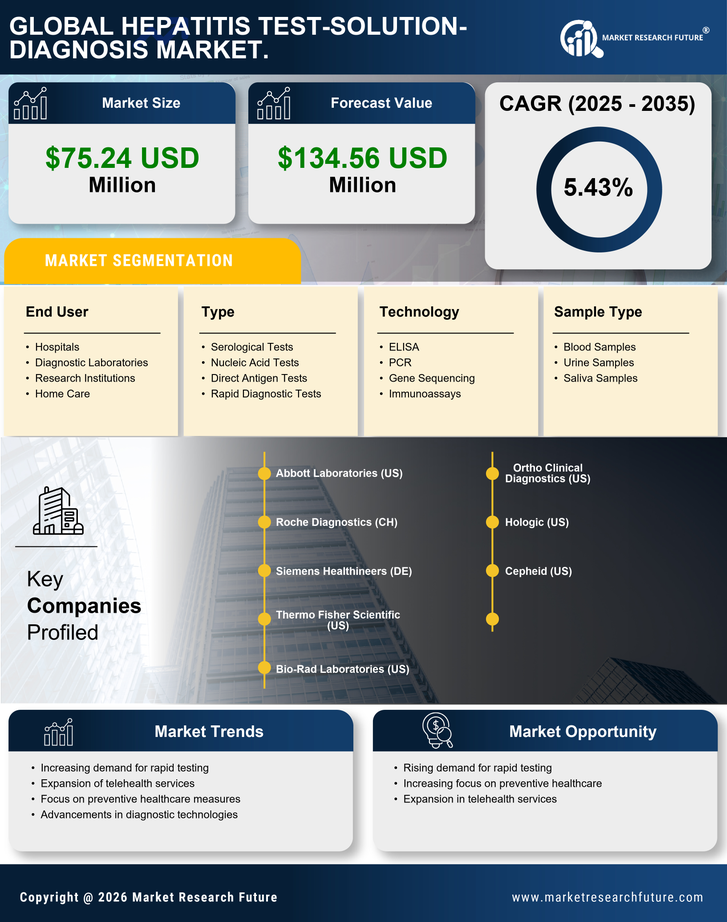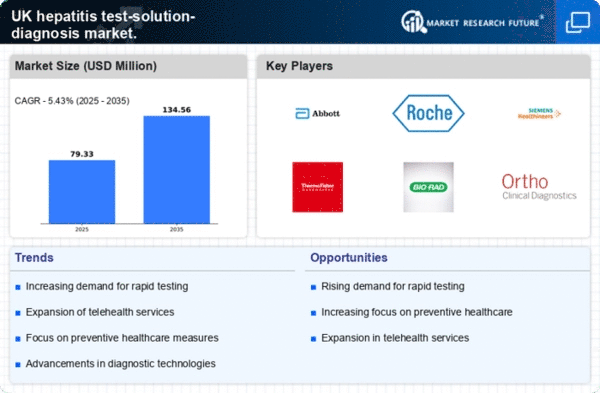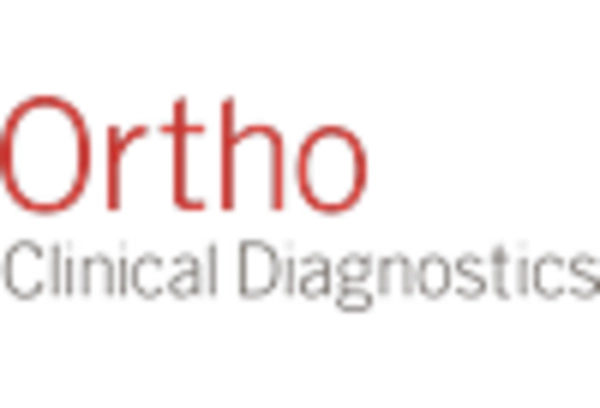Government Initiatives and Funding
Government initiatives aimed at combating hepatitis infections significantly influence the hepatitis test-solution-diagnosis market. The UK government has implemented various programs to increase screening and treatment accessibility, particularly for high-risk populations. For instance, funding for hepatitis C treatment has been bolstered, with the NHS allocating approximately £100 million annually for antiviral therapies. Such financial support not only enhances the availability of testing solutions but also encourages healthcare providers to adopt advanced diagnostic technologies. The commitment to eliminating hepatitis as a public health threat by 2030 further underscores the importance of these initiatives, creating a conducive environment for growth in the hepatitis test-solution-diagnosis market.
Advancements in Diagnostic Technologies
Technological advancements in diagnostic methodologies are reshaping the hepatitis test-solution-diagnosis market. Innovations such as point-of-care testing and molecular diagnostics have emerged, offering rapid and accurate results. For example, the introduction of nucleic acid testing (NAT) has improved the detection rates of hepatitis viruses, allowing for timely interventions. The market is witnessing a shift towards more user-friendly and efficient testing solutions, which could potentially enhance patient compliance and reduce the burden on healthcare systems. As these technologies become more integrated into routine healthcare practices, the demand for sophisticated diagnostic tools in the hepatitis test-solution-diagnosis market is expected to rise.
Increased Focus on Preventive Healthcare
The growing emphasis on preventive healthcare is a notable driver for the hepatitis test-solution-diagnosis market. Public health campaigns promoting regular screenings and vaccinations against hepatitis A and B are gaining traction in the UK. This proactive approach aims to identify infections early and prevent complications, thereby reducing healthcare costs in the long run. The integration of hepatitis testing into routine health check-ups is becoming more common, reflecting a shift in healthcare paradigms. As individuals become more health-conscious, the demand for hepatitis testing solutions is likely to increase, further propelling the hepatitis test-solution-diagnosis market.
Rising Demand for Home Testing Solutions
The trend towards home testing solutions is emerging as a significant driver in the hepatitis test-solution-diagnosis market. With the increasing preference for convenience and privacy, patients are seeking options that allow them to conduct tests in the comfort of their homes. This shift is supported by advancements in technology that enable accurate and reliable home testing kits for hepatitis. The market is responding to this demand by developing user-friendly products that provide quick results. As the acceptance of home testing grows, it is anticipated that the hepatitis test-solution-diagnosis market will expand, catering to the evolving needs of patients.
Rising Incidence of Hepatitis Infections
The increasing incidence of hepatitis infections in the UK is a critical driver for the hepatitis test-solution-diagnosis market. Recent data indicates that the prevalence of hepatitis B and C has been on the rise, with an estimated 200,000 individuals living with chronic hepatitis B and around 200,000 with chronic hepatitis C. This growing patient population necessitates enhanced testing solutions to facilitate early diagnosis and treatment. As awareness of these infections expands, healthcare providers are likely to invest more in diagnostic tools, thereby propelling market growth. The urgency to address these infections aligns with public health initiatives aimed at reducing transmission rates, further stimulating demand for effective testing solutions in the hepatitis test-solution-diagnosis market.

















